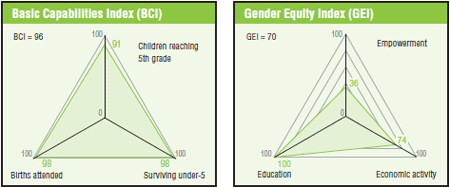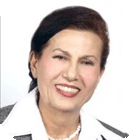Armenia
End of Transition? Nationalization of Sustainable Development Goals
Published on Sun, 2017-08-20 22:23
The Armenian government seeks to liberalize socioeconomic and political activities in a framework of respect for human rights and gender equality, acknowledges the national Social Watch report. Over the past 15 years, the poverty rate has fallen from 51 percent to 26.5 percent, but the unemployment rate is unchanged, which remains one of the main factors driving labor migration: almost one in four families (23%) in Armenia has members outside the country, of which 20 percent are in Russia and 3 percent in Europe. The analysis of the Center for Development of Civil society concludes that despite a certain increase in per capita income, the current level allows families to cover only the costs of food and some utilities, since the state's minimum wage and various allowances do not take into account needs for medical care, education, vacation time or cultural activities. |
Published on Fri, 2016-10-21 12:14
Innovative approaches are necessary to increase the leadership of young women with vulnerable backgrounds, to eradicate poverty and prevent forced trafficking. Our research revealed that a large number of young women age 17-22 are not engaged in public life or social activities. They have found themselves in an especially vulnerable situation – with no education, no job and no perspective. Their isolation and social regression lead to loneliness and an uncertain future. As a solution, the Center for the Development of Civil Society (CDCS) initiated a special program aimed at providing young women from vulnerable and low-income families, orphanages, state boarding schools and refuges with equal access to education and opportunities for successful employment. |
Published on Thu, 2013-04-11 11:07
Armenia adopted the “UN Millennium Declaration” in 2000. It was obvious that the goals cannot be comprehensive, and each country should determine its current problems, especially if the solution is defined by the Constitution and other laws and international obligations. As a result of MDG local adaptation the following goals: “Achieve universal primary education”, “Contribute to gender equality and empowerment of women” were not recognized as the first order priority since the Constitution obliges the state to ensure that all citizens work, have a decent standard of living, access to all levels of education, professional training, health care and healthy living conditions, etc. However despite these two goals were not emphasized as priority ones some achievements were observed with respect to these spheres. The programs initiated for eradicating poverty and achieving equality were sentenced to fail, since they are not focused on human being, that is the program results are not tied to improvement of real life of people. |
|
Published on Fri, 2012-03-16 14:21
In terms of gender equity Armenia lags behind the European average, but is in a better condition than its European neighbours. |
Published on Mon, 2012-03-05 12:46
Armenian legislation supports women’s rights, but the laws often clashes with daily habits. The non governmental Center for the Development of Civil Society (CDCS), presided by Svetlana A. Aslanyan, launched some years ago the program “Empowering young women in rural areas”, that included seminars on human rights, gender equality, leadership as well as training courses and publication of materials and books. The aim was to increase the role of rural women in the decision making processes at both local and national levels. The seminars have helped young women to discover their abilities and to be active participants in civil society. |





